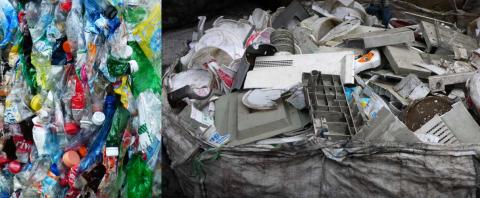Keep Hazardous Chemicals in Waste Out of the Circular Economy

A decision that will impact toxic waste dumping in developing countries, as well as the amount of Persistent Organic Pollutant (POPs) waste allowed in the circular economy, will be made by delegates from the Parties to the Basel Convention (Geneva, Sept. 3-7, 2018).
Threshold limit concentrations that define POPs waste – the most toxic form of waste that exists— determine whether a toxic substance is considered a POP and must be destroyed, or is considered “clean” and can re-enter the recycling stream. If a high level is set of one specific POP, Short Chained Chlorinated Paraffins (SCCPs), known to cause sever health and environmental impacts, it will result in increased hazardous waste dumping in developing countries and more contamination of products made of recycled materials, such as children’s toys.
Read from NGOs on the significance of this upcoming decisions, background FAQ on SCCPs, and IPEN’s press release about this dangerous policy on the table HERE.
